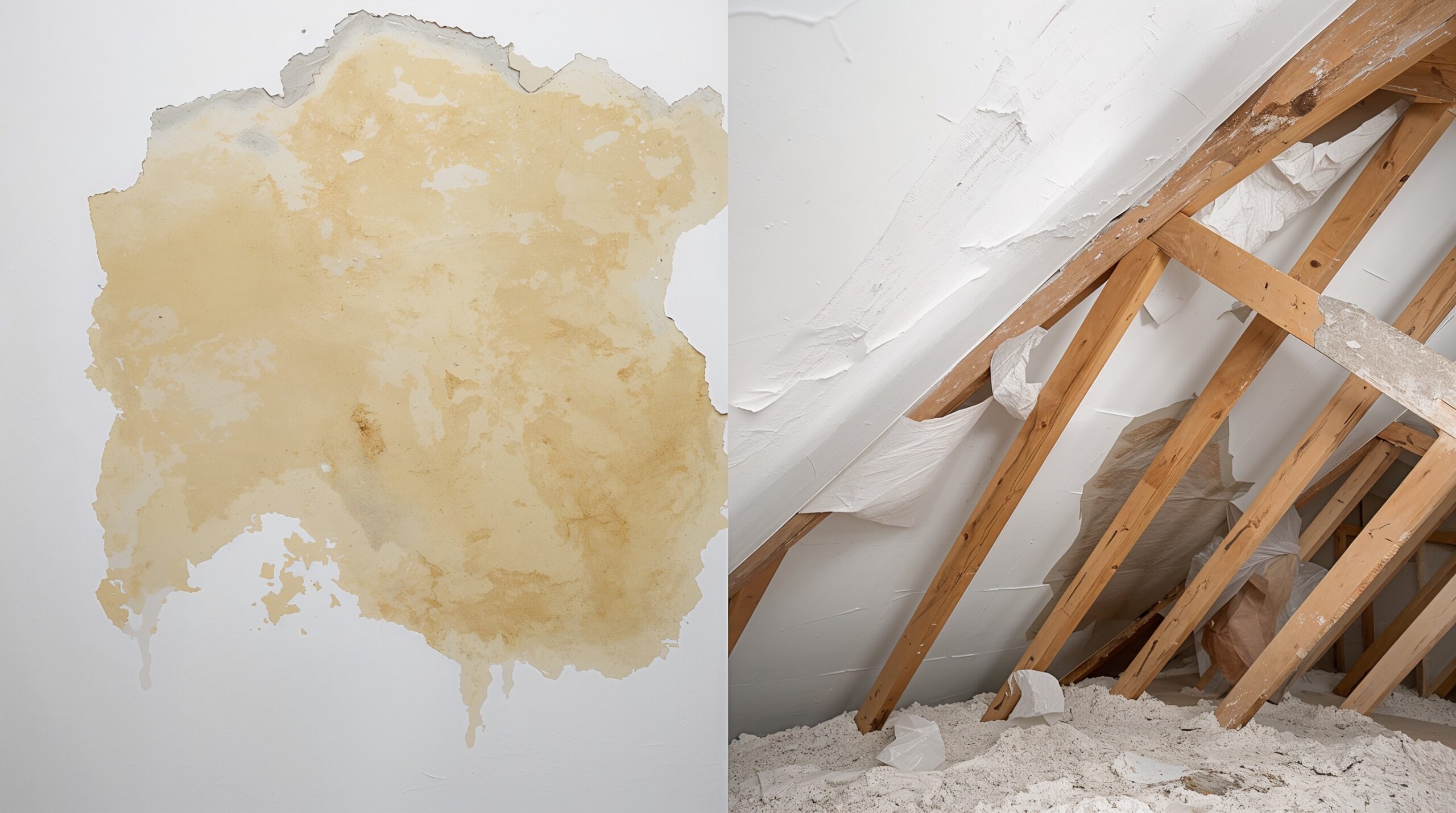Most homeowners don’t think about their roof until something goes wrong. A leak here, missing shingles there—it’s easy to dismiss small issues as minor. But the truth is, those little problems add up fast.
That’s why regular roof inspections are one of the smartest, most cost-effective steps you can take to protect your home. Not only do they prevent surprise repairs, but they also extend the life of your roof and help keep your energy bills under control.

Small Problems Become Big Costs
Your roof is constantly exposed to harsh weather: rain, wind, sun, snow, and everything in between. Over time, even the best-built roofs develop wear and tear.

Here’s what often happens:
- A cracked shingle lets in a small amount of moisture.
- Moisture builds up inside the attic or insulation.
- Mold or wood rot begins to form.
- You don’t notice anything—until brown spots appear on your ceiling or energy bills spike.
By the time a roof issue is visible indoors, it’s usually been developing for weeks or even months. That means the repair cost could be two or three times higher than it would’ve been with early detection.
How Roof Inspections Protect More Than Just Your Roof
Most homeowners think of roof inspections as something you do only to prevent water damage or stop leaks. But a well-maintained roof also protects your home’s overall structural integrity, energy efficiency, and even indoor air quality.
Think about this: your roof isn’t just a lid. It connects directly with your attic, walls, insulation, and HVAC system. A slow leak that isn’t caught in time doesn’t just rot the plywood under your shingles—it can also soak insulation, short out wiring, or create humid conditions perfect for mold.
In winter, poor ventilation can lead to ice dams and condensation. In summer, hot attic spaces make your AC work harder. Both situations come back to one root problem: a roof that isn’t being regularly checked by a trained pro.
Regular inspections give homeowners the chance to prevent those larger systems from breaking down. That’s not just a savings win—it’s a health and comfort win too.
What’s Included in a Professional Roof Inspection?
A roof inspection isn’t just a quick glance from the curb. Professional roofing companies follow a detailed checklist to make sure nothing gets missed.
A thorough inspection should include:
- Shingles and tiles – Looking for cracks, curling, or missing pieces.
- Flashing and seals – Checking around chimneys, skylights, and vents for leaks.
- Gutters and drainage – Ensuring water flows away from the roof properly.
- Roof decking – Testing for soft spots that indicate hidden damage.
- Ventilation – Evaluating airflow to prevent heat and moisture buildup.
- Interior check – Inspecting attic spaces for signs of leaks, mold, or pests.
Many companies also use drone imaging or infrared scans to detect issues that aren’t visible to the eye. These tools allow inspectors to pinpoint hidden trouble without lifting a single shingle.
Peace of Mind Comes From Proactive Care
It’s easy to assume your roof is fine—especially if there are no obvious signs of damage. But most roofing issues don’t announce themselves right away. They build up slowly, over months or even years. That’s why proactive care, not reactive fixes, is the better approach.

When you schedule inspections regularly, you remove the guesswork. You’ll know the condition of your roof and get ahead of problems before they become emergencies. That peace of mind is worth more than you think, especially during storm season when roofing companies get booked out for weeks.
And here’s the best part: regular inspections can be planned around your schedule and budget. Many professional roofing companies offer affordable annual plans or combine inspections with small seasonal maintenance. It’s not a huge project—it’s a smart habit that helps you avoid big expenses down the line.
Why Preventive Inspections Pay Off
Still not convinced? Here’s why inspections more than pay for themselves:
| Benefit | How It Helps |
| Catch problems early | Fix issues before they become emergencies |
| Save money | Avoid full roof replacements or structural repairs |
| Maintain warranty coverage | Many warranties require annual inspections |
| Extend roof lifespan | Proper maintenance helps your roof last 5–10 years longer |
| Improve energy efficiency | A sealed and ventilated roof lowers your bills |
Regular inspections can save homeowners hundreds or even thousands of dollars over the lifespan of the roof.
How Often Should You Get a Roof Inspection?
As a general rule:
- Twice a year is ideal—once in spring and once in fall.
- After any major storm, especially if hail or high winds were involved.
- If your roof is over 10 years old, consider annual inspections even without visible issues.
- Before selling your home, to avoid surprises during buyer inspections.
These checkups don’t take long, but they can make all the difference between a minor patch and a major repair.
Why You Shouldn’t DIY a Roof Inspection
You might be tempted to grab a ladder and do your own inspection. But unless you’re trained and equipped, it’s a risky idea.

Why leave it to the pros?
- Safety first – Professionals use harnesses, shoes with grip, and ladders built for height work.
- They know what to look for – Some signs of damage are subtle or hidden.
- They provide documentation – A written report with photos helps track issues over time or file insurance claims.
- They give recommendations – You’ll know what needs fixing, when, and how much it’ll cost.
Hiring professional roofing companies ensures your roof is being inspected by someone who knows what early-stage damage looks like—and how to fix it fast.
Frequently Asked Questions
How much does a roof inspection cost?
A basic roof inspection typically costs $150–$300, but some roofing companies offer it free with a repair or maintenance service.
What’s the best time of year for a roof inspection?
Spring and fall are ideal, but any time after a major storm is smart too. Avoid winter inspections unless there’s an emergency.
Can I inspect my own roof?
It’s not recommended. Most damage is hard to spot without training, and climbing onto your roof can be dangerous without proper equipment.

